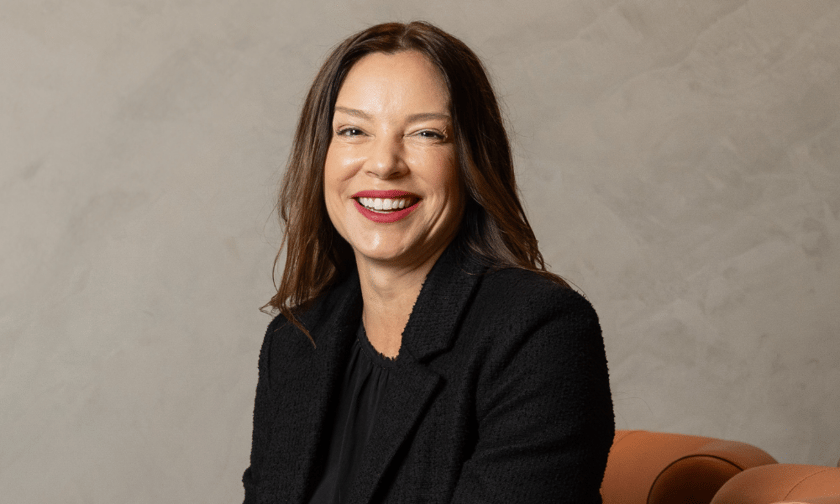

Anja Pannek doesn't like to talk about herself.
"I know it might surprise you. But I feel quite uncomfortable talking about myself," she told Australian Broker.
While no one likes a show-off, women in particular are taught to be modest about their accomplishments, while men are encouraged to be competitive. Yet Pannek's resume speaks for itself. Aside from her current position as the chief executive officer of the Mortgage and Finance Association of Australia (MFAA), she's been in the C-suite of at least a half a dozen companies, attended Ivy Leagues schools, including Stanford and Harvard in the US, and is well-known within the the financial services industry. Over a video chat, she is articulate and knowledgeable about the industry.
In honour of Women's History Month, Australian Broker is spotlighting women in charge and in positions of power in the nation's broker and financial services sectors. Australian Broker sat down with Pannek for her thoughts on female leadership and women at the helm.
"[Female leadership] is not at all the level I think we need to have it at. I guess the question is, what is enough?" Pannek said.
According to The Leadership Institute, a Sydney-based educational development organization, women hold nearly 50% of the workforce's entry-level jobs, but only 22.3% of CEO positions and 35.1% of key management positions. In addition, women in Australia make just 78 cents for every $1 earned by men, according to the most recent report from the Australian government's Workplace Gender Equality Agency. That's a difference of more than $28,000 a year.
In the broker industry, where brokers are all paid equally based on a commission structure, female brokers still only make up just 26.7% of the broker population across all levels in Australia, according to the MFAA.
"We try very hard [at MFAA] to profile that diversity and to demonstrate that it does matter. We've got strong female representation across our board. We want to role model what's possible," Pannek said.
In addition to the CEO, the list includes MFAA chair Kerri Buurman and deputy chair Caroline Jean-Baptiste.
"And there are some outstanding female leaders who lead the third party, either in particular states with aggregators, which will lead lending distribution teams as well, for lenders, for banks and non [authorized deposit-taking institutions]," Pannek said. "But often, when I meet with younger brokers who've come into industry – and I meet with female members that we have as MFAA members, and also male members, male brokers – they often call out that it's fantastic to see female leadership in the industry association, and that's not just myself.
"We can't underestimate the power of role models," she said. "It's like that line: to aspire to be something … sometimes it's difficult to see yourself in a role if there is a lack of female senior leadership, whether if that's within an organization or within an industry."
Pannek said much of the discrepancy in gender ratios comes down to stereotypes and past judgements about women in the workplace – many of which are made without even thinking.
"I mean, unconscious bias, it's a very human thing," she said. "We all feel most comfortable with people that are more similar to us. It's not dissimilar in this industry, compared to others."
Despite the less-than-stellar numbers, Pannek said there are still things industry insiders – in particular, male leaders – can do to incentivize women to join the industry, and hopefully move up the ladder.
"I think it really comes down to the leadership of other leaders. If you're a male leader of an organization and you want to mix up that leadership, [think about] what steps can you take," Pannek said. "And I'm in no way saying that this isn't a focus for leaders across the MFAA. But I think across our industry we all need to admit that [gender diversity] needs to remain a focus. My challenge to lenders and to aggregators is as they think about how they hire, promote and reward, is to ask, how do we actively ensure that top female talent is included in all the decisions?
"And there's work to be done when it comes to the other avenues through which women are considering their career paths," she said. "And that comes down to promotion in schools, universities, [and] also vocational education, where [young girls] are trying to consider what their options should be as well.
"It's also how we retain females in the industry," Pannek said. "The reality of COVID is we saw women, in particular those with families, potentially step back from their businesses in instances where they were primary carers for children and their family during that period. We're starting to recover from that loss of female participation. It's starting to edge up. But what else can be done around that? In my mind, that's highlighting the flexibility that brokering can provide for someone who has other responsibilities – [whether] it's children, family or parents – and highlighting the women who are very successful in terms of doing that."
